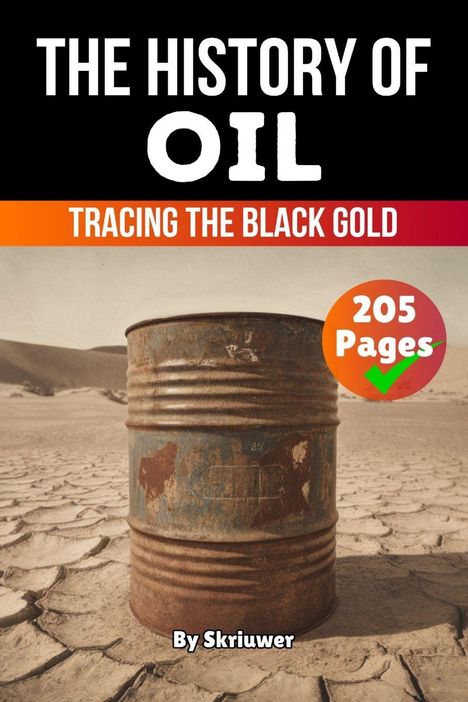Skriuwer. com: The History of Oil, Kartoniert / Broschiert
The History of Oil
- Tracing the Black Gold
(soweit verfügbar beim Lieferanten)
- Verlag:
- De Fryske Wrâld, 11/2025
- Einband:
- Kartoniert / Broschiert
- Sprache:
- Englisch
- ISBN-13:
- 9783565084845
- Artikelnummer:
- 12539100
- Umfang:
- 206 Seiten
- Gewicht:
- 307 g
- Maße:
- 229 x 152 mm
- Stärke:
- 11 mm
- Erscheinungstermin:
- 11.11.2025
- Hinweis
-
Achtung: Artikel ist nicht in deutscher Sprache!
Klappentext
What if oil isn't just fuel-but the blood of empires, wars, and buried secrets? Explore 5, 000 years of obsession-from Babylonian bitumen to Rockefeller's ruthlessness-in a book that stains your hands with truth. EXPLOSIVE REVELATIONS: Ancient Ingenuity: Ancient Chinese drilled 900-ft oil wells using bamboo - 1, 800 years before Texas. Brutal Origins: Aztec temples sealed human sacrifices with bitumen - Spanish called it "devil's tar." Ruthless Barons: John D. Rockefeller paid thugs to sabotage rivals and hired snipers to shoot resisting farmers. LARGE PRINT EDITION: Crystal-clear text for marathon reading sessions.
DIRTY WARS & DIRTY TRUTHS: Greek Fire: Byzantium's napalm that melted Crusader fleets. Pirates of Pennsylvania: Wildcatters bribing natives with poisoned whiskey. Hidden Empire: Medieval monks hid Persian oil-refining texts from the Inquisition.
A READER'S VERDICT: "You'll side-eye every gas station afterward." - Dr. Rachel K., Energy Historian UNEARTH THE DIRT. BEFORE IT BURIES US ALL.
Anmerkungen:
Bitte beachten Sie, dass auch wir der Preisbindung unterliegen und kurzfristige Preiserhöhungen oder -senkungen an Sie weitergeben müssen.
Mehr von Skriuwer. com
-
Skriuwer. comA Self Help Book for Christian Teen GirlsBuchAktueller Preis: EUR 14,99
-
Skriuwer. comThe History of BeerBuchAktueller Preis: EUR 15,99
-
Skriuwer. comOverthinking Psychology BookBuchAktueller Preis: EUR 14,99
-
Skriuwer. comHow to Deal with Conflict BookBuchAktueller Preis: EUR 14,99






